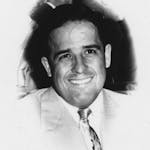Ellen Hicks weighed less than 2 pounds when she was born three months premature.
Her severe disabilities meant she would be in a wheelchair for the rest of her life. She was unable to speak, was blind in one eye and had limited vision in the other. She was fed through a stomach tube and only had the use of one arm.
Her parents were unable to care for her, so she lived in a foster home as a child and in a group home as an adult. She was a ward of the state for her entire life.
But those who knew her best said she was a woman with a vibrant personality, who lived an active and happy life surrounded by people who loved her.
Hicks, who lived in Eden Prairie, died July 5. She was 36.
Nancy Lawver, Hicks' foster mother, said she and her husband brought Hicks into their Eden Prairie home from Children's hospital in Minneapolis when she was six months old. When Hicks' parents gave up parental rights to the baby, the Lawvers made a long-term commitment to care for her.
Hicks grew up surrounded by other children, including the Lawvers' five kids and the scores of other foster children the family cared over over the years. She went to concerts and on family motor home vacations to Mount Rushmore in South Dakota and the French Quarter in New Orleans.
"We did not leave her behind," Lawver said.
Hicks also had a next-door neighbor of the same age with significant disabilities, Phillip Hayen. Phillip and Ellen grew up riding the bus together to school and were in the same classes throughout their education.
"They were good friends," Lawver said.
Phillip's home was converted into a group home at about the time both he and Ellen became adults. He and Ellen became the first two occupants of the home when it officially opened in 2005.
Phillip's mother, Linda Hayen, said Hicks loved giving high-fives to anyone who knew her.
"She loved to throw things across the room and to hear music and funny noises. She had a great giggle and a great smile," Hayen said.
Hicks could recognize the voices of people she knew. If you were lucky, she would hold your hand, but if you weren't paying attention to her, she might give you a pinch, said Tricia Dahlberg, who was a supervisor at Hicks' group home and later became her legal guardian.
Her caregivers made sure Hicks was dressed in cute clothes. They liked to change her hair style, too.
"She never spoke, but she had this huge personality," Dahlberg said. "I loved her and knew her so well."
"She had a great sense of humor," Lawver said. "She laughed. She laughed a lot."
Hicks was healthy for most of her life, but was hospitalized with pneumonia last fall. In June, she fell ill again. As her condition worsened, Dahlberg had to make the difficult decision to discontinue life support. But she didn't want Hicks to die alone in the hospital.
"She died in my home. I brought her home in hospice," Dahlberg said.
A memorial service was held at the church that Hicks attended as a child with her foster family. She was buried in the Lawvers' family plot in a cemetery near Waconia. Her foster father, Douglas Lawver, dug the grave for her cremated remains.
"Her whole life she was wanted and valued," Dahlberg said.





